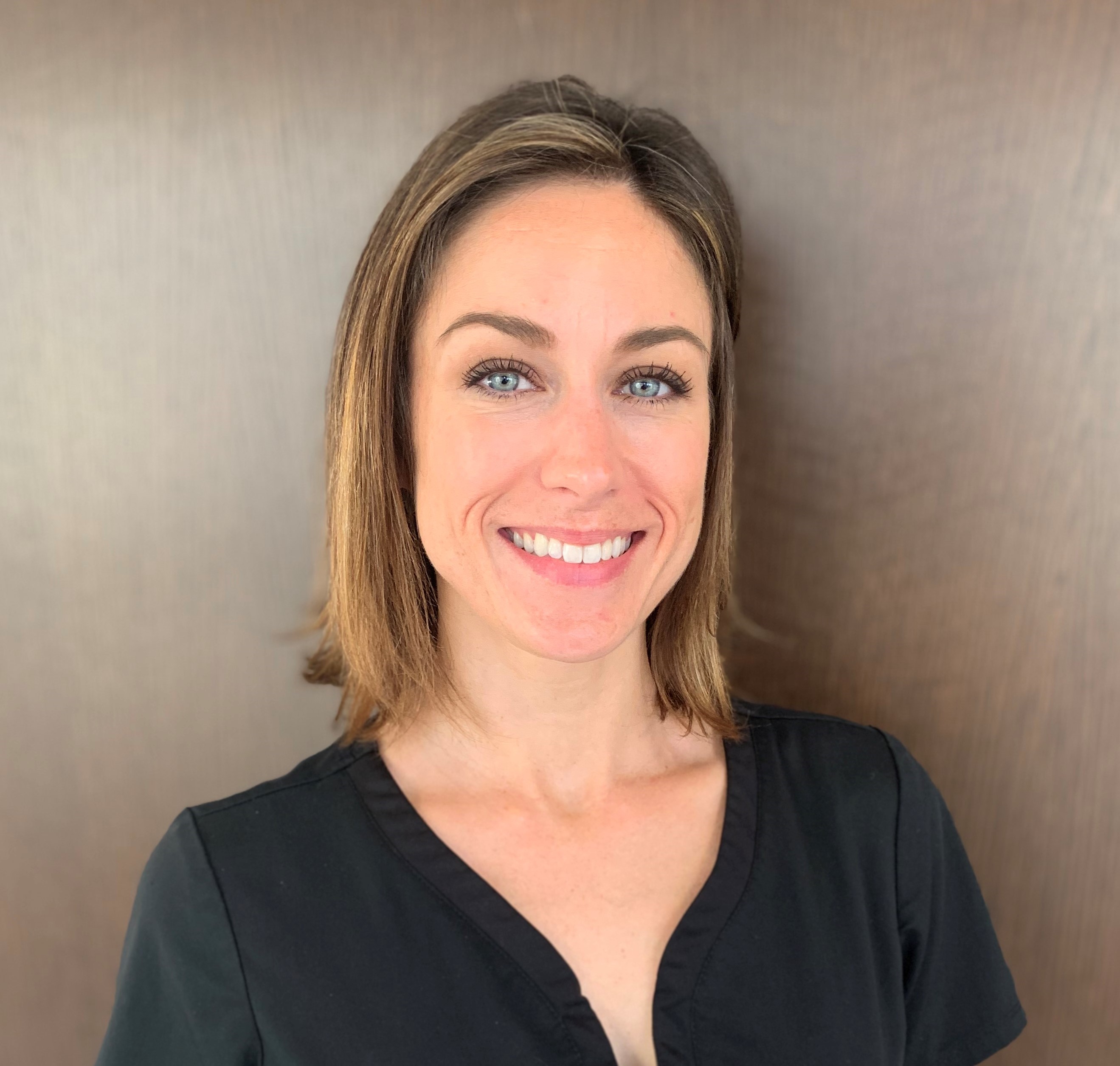Meet Jessica Stingley, BS, RDMS, RVT 
Tell us about your background. Originally a dental assistant, my father’s experience and training as a physical-therapist-turned-dentist unintentionally directed me to the medical/patient care field. Before acceptance into our DMS program, I was a CNA in a nursing home setting and then the Burn & Trauma center (8JC) where I continued to work throughout my training. After graduation, I worked as a vascular sonographer directly with a vascular surgeon who had also just finished his training. I have now been back with UIHC in the Breast Imaging center for the last 3+ years and have really enjoyed my experiences with staff, patients, their care team, and the various students I get the privilege to be a clinical preceptor for.
Why did you pick sonography as a career field? Anatomy, autonomy, & income. While preparing for life after divorce with my two young children, I researched career possibilities in the medical field that I felt we, as a family, could handle considering intensity, clinical time commitments, financial commitment, and possible income. Anatomy & physiology have always been a favorite of mine. The ability to visualize anatomical structures, using our understanding of anatomical variants and the physiological, developmental, & trauma/post-surgical effects on structures while also demonstrating dynamic information such as blood flow was and still is so fascinating to me - and all without ionizing radiation. Once I understood the physics of sonography, it just added to the fascination and appreciation. The autonomy in this field was another draw at the time and I greatly appreciate the trust I’ve earned from those I have been and currently am “the eyes” for. On that note, also the inquisitive patients. We are trained to only give facts, and I am in a specialty where verbal reports are given before the patient leaves since emotions & anxieties are high. I enjoy explaining the facts of what is on the screen so the patient feels more involved and has an understanding and appreciation of looking at their own tissue before receiving their verbal report. I feel it also helps lesson their anxiety when they have some understanding - not just having to blindly trust information given to them about their body.
What is your favorite exam? RAS. As far as favorite exam goes, the renal Doppler (or Renal Artery Stenosis) is at the top of a few. Many are those that include using pulse wave. I enjoy acquiring the added dynamic information for the patient’s care team. However, I greatly value the complexity of the highly variable breast US exam, especially when challenged to locate a subtle finding paired with the interpersonal time I get to have with our patients during imaging and procedures.
Advice for anyone interested in the sonography field? Stay curious! Get yourself in for job shadows in multiple settings and specialties. Ask all the questions. If you know or get to know a sonographer, ask to set time aside to pick their brain. Keep notes if that’s helpful for you to reflect on the various experiences. Accept the fact that we, as humans, never stop learning - and that is why especially true in the field of sonography.
